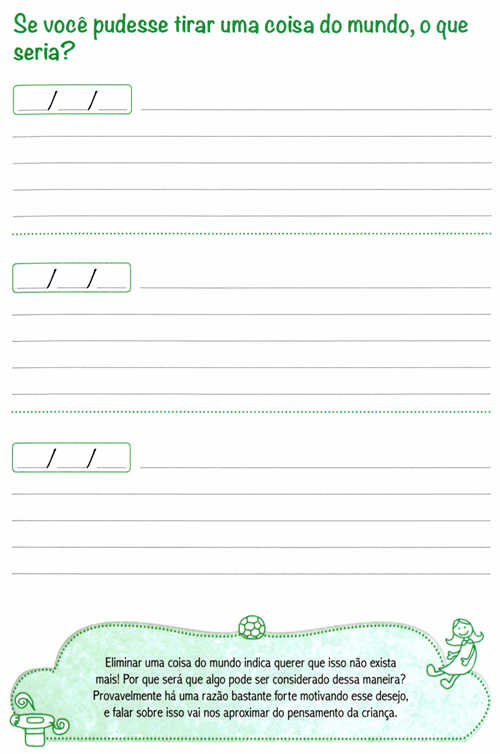The Harvard Family Research Project separated from the Harvard Graduate School of Education to become the Global Family Research Project as of January 1, 2017. It is no longer affiliated with Harvard University.
March 2016
Everyone for Education, and Education for Everyone: Promoting Family Engagement in Brazil
A Brazilian mother holds her iPhone up in front of her daughter and begins recording. Her daughter is holding a small booklet and drawing on a page. The mother reads from the page and asks, “What do you think it is that people need most in the world?” Her daughter, age 5, thinks for a moment before saying, “Love and lots of care … and brownies!” “Brownies?” her mother questions, smiling, as the child erupts into laughter.
|
|
 This publication is part of the program 5 Attitudes for Education, by the movement Everyone For Education. To find out more visit www.5atitudes.org.br. |
- Put value on teachers, learning, and knowledge;
- Promote important skills for life and for school;
- Integrate education into daily life;
- Help young people follow their dreams and be the leaders of their destinies; and
- Boost the availability of sports and cultural activities for young people.
To encourage education in daily life, especially in the home, Everyone for Education partnered with another organization, Comunidade Educativa Cedac, to publish a booklet titled 100 Questions to Get Them Talking. The booklet consists of questions family members can ask their children and a space where they can record children’s responses over time and note their changing emotions, ideas, or interests. By recording these responses, families are engaging in active conversation with their children and learning about their daily lives in a guided way. The standard “how was school?” question disappears, and along with it the standard “good” response. The questions are divided into four categories: education, feelings, young people in the world, and culture and sports. Examples of questions include:
- What was the most important thing you’ve ever learned in school? (Education)
- What makes you feel strong? (Feelings)
- How do you think you could make the world a better place? (Young People in the World)
- Who is your idol? (Culture and Sports)
Some of the questions are difficult to respond to, and serve not only to connect children’s education to their daily lives but also to provide an opportunity for family members to explore creative topics and encourage children to develop original thoughts and ideas. In this way, the booklet also supports another key attitude: promoting important skills for life and for school. For children who may have difficulty responding to direct questions, the booklet offers alternatives for self-expression. Some pages of the booklet offer spaces for drawing instead of writing, giving children the opportunity to share their thoughts in different ways. In the example shown below, the booklet asks, “If you could take one thing out of the world, what would it be?” (Page 17)
Simple, effective tools like 100 Questions to Get Them Talking can help families engage with their children’s education anywhere. Establishing two-way dialogue and encouraging curiosity in the safety of the home can help build the confidence of students to be active learners in school and to follow their dreams and shape their own destinies.
Note: Harvard Family Research Project had the opportunity to hear more about the work of this organization and share research on family engagement at Fundação Itaú Social’s forum on education in Brazil. To find out more about Everyone for Education and their initiatives, visit http://www.todospelaeducacao.org.br/ (use your browser’s translate tool if necessary).
SNAPSHOTS CONTRIBUTOR:
Robin Goode, 2016 Ed.M. candidate at Harvard Graduate School of Education, is a graduate research assistant at Harvard Family Research Project. She is a former middle-school instructor and current student of international education policy.
|
SEND US YOUR SNAPSHOTS! If you’re doing something that you think others should know about, we invite you to send us a description with a photo or short video to fine@gse.harvard.edu with the subject line: SNAPSHOTS. |


